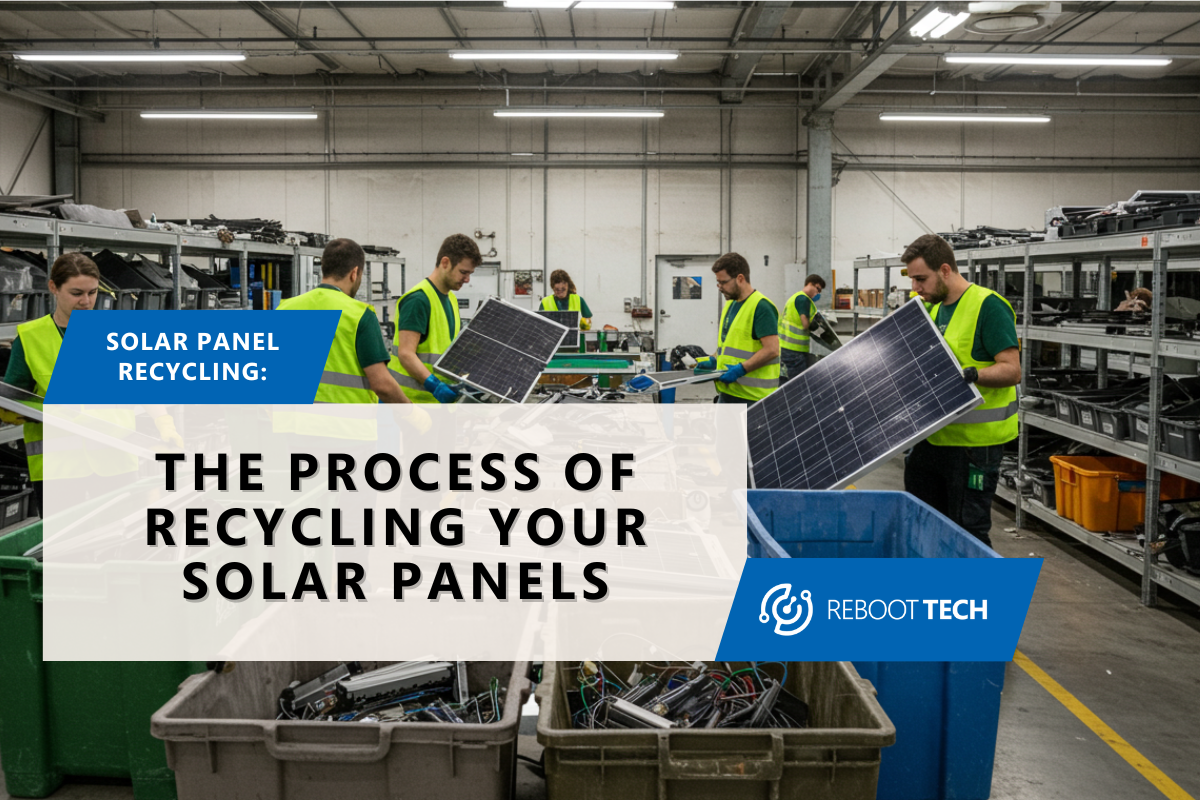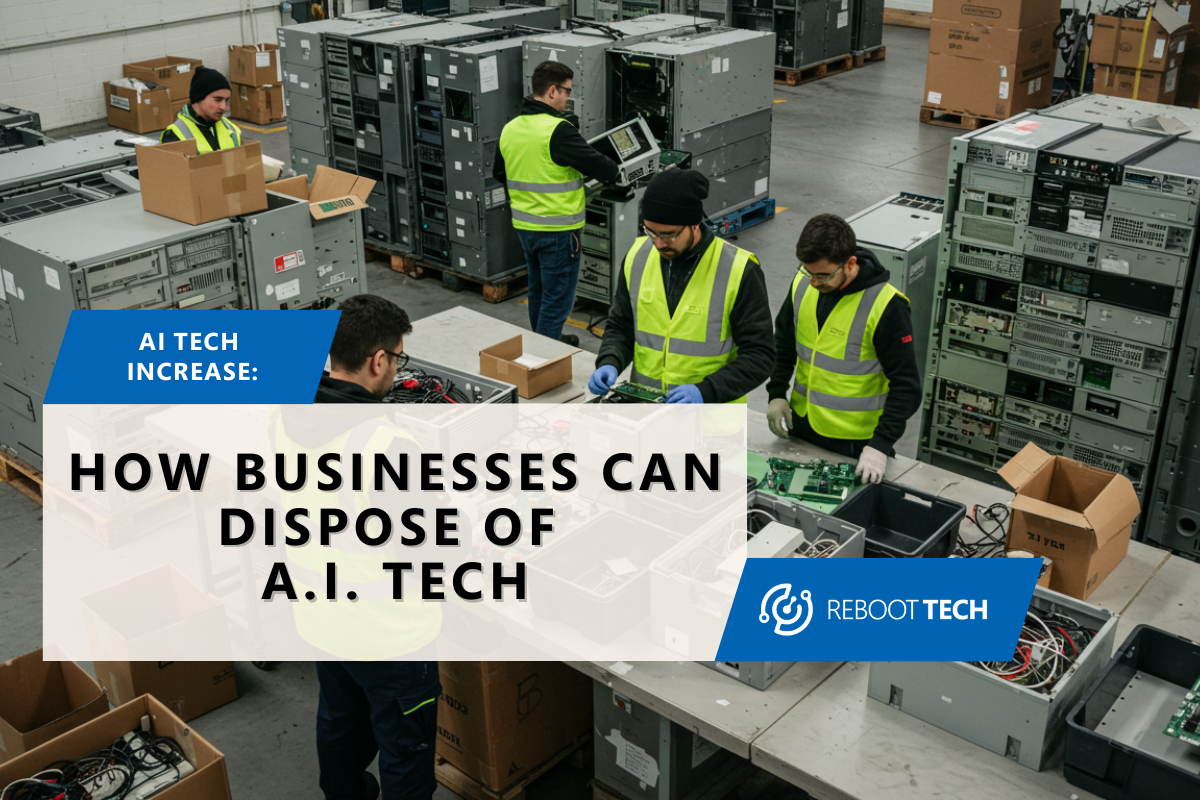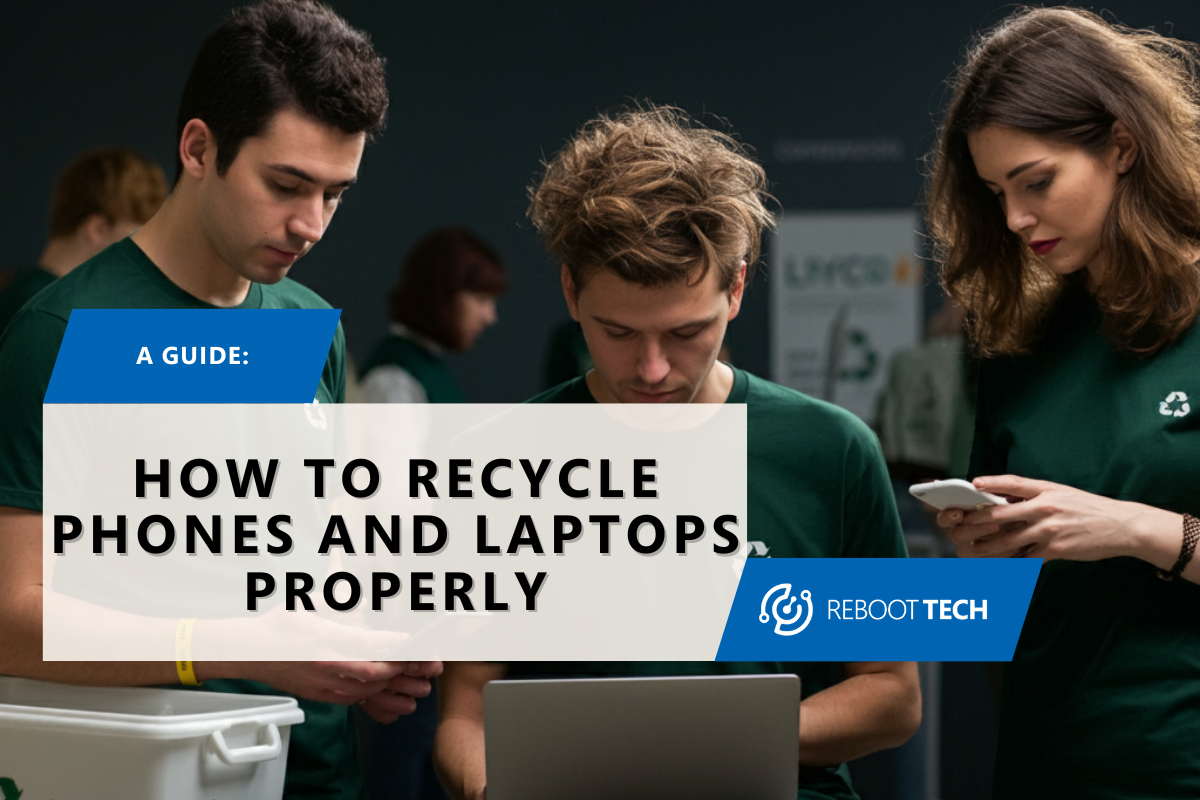
How To Recycle Phones and Laptops Properly
Every year, millions of people upgrade their phones and laptops to the latest models. While it’s exciting to have new tech, the rapid pace of technology has a downside: electronic waste, or e-waste. Each time we upgrade, we create more discarded electronics, many of which end up in landfills. These devices contain valuable materials that can be reused, and recycling them responsibly is a simple step we can take to reduce e-waste.
In this guide, we’ll dive into the importance of recycling phones and laptops. You’ll learn how to safely dispose of your devices, where to recycle them, and other ways to extend the life of your electronics. Let’s explore how we can make a positive environmental impact with phone and laptop recycling.
The Increase in E-Waste
The production of phones, laptops, and other electronics has skyrocketed in recent years. With major companies releasing new models annually, consumers are encouraged to upgrade frequently. According to the Global E-Waste Monitor, global e-waste reached 53.6 million metric tons in 2019 and is expected to grow by 21% by 2030. Every upgrade leads to more devices left unused, contributing to this rapidly growing problem.
Old electronics contain valuable components like gold, copper, and lithium, which can be reused to create new devices. However, only about 17% of e-waste is currently recycled since e-waste management is still being refined. The rest ends up in landfills or is improperly disposed of, releasing harmful chemicals and metals into the environment. Recycling is crucial to minimize waste and repurpose these valuable resources.
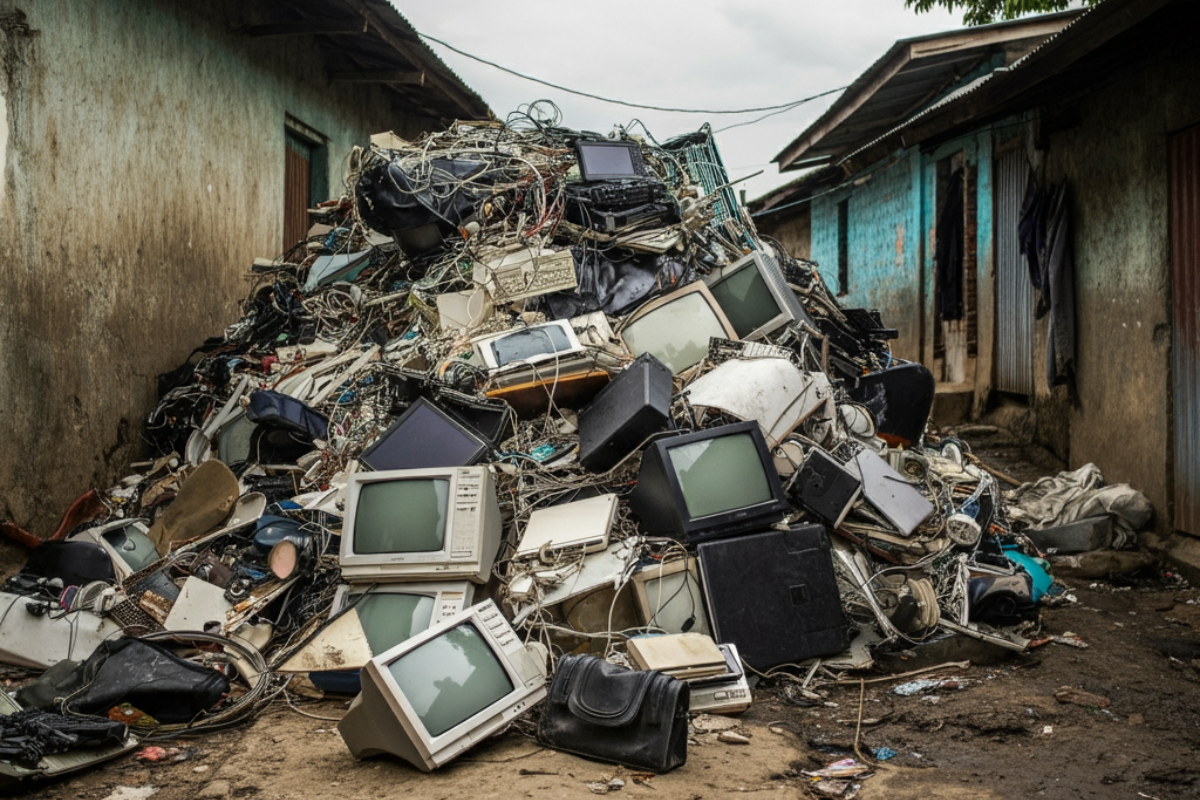
How to Recycle Old Phones
Recycling your mobile phones and other electronic devices is easier than you might think. Here’s a step-by-step guide on how to recycle your phone properly:
- Back Up & Delete Data: Before recycling, back up any important information on your phone. You can use cloud storage or external storage options to save photos, contacts, and files. Once your data is backed up, perform a factory reset to erase personal information.
- Remove SIM & Memory Cards: Take out the SIM card and any external memory cards. These often contain personal data and can be used in other devices or safely stored.
- Find a Certified Recycling Center: Many electronics stores and certified recyclers accept phones for recycling. The Environmental Protection Agency (EPA) lists certified recyclers, or you can check with retailers like Best Buy and Staples, which often offer recycling services.
- Consider Manufacturer Take-Back Programs: Several manufacturers, including Apple, Samsung, and Google, have programs to take back and recycle their devices. Sometimes, they offer trade-in discounts or store credit as an incentive.
- Donate or Sell: If your phone is still in working condition, consider donating or selling it. Many organizations, like Cell Phones for Soldiers, accept working phones for donation, helping people in need while reducing e-waste.
How to Recycle Old Laptops
Laptops contain batteries, metals, and other materials that make recycling both crucial and challenging. Here’s how to responsibly recycle your laptop:
1. Back Up Important Data: Save your documents, photos, and other important files to an external hard drive or cloud storage. This ensures you have access to your files on a new device.
2. Wipe the Hard Drive: A factory reset may not completely erase your data. Use data destruction software like DBAN or consult a professional to wipe your hard drive thoroughly. This step is essential to protect sensitive information before recycling.
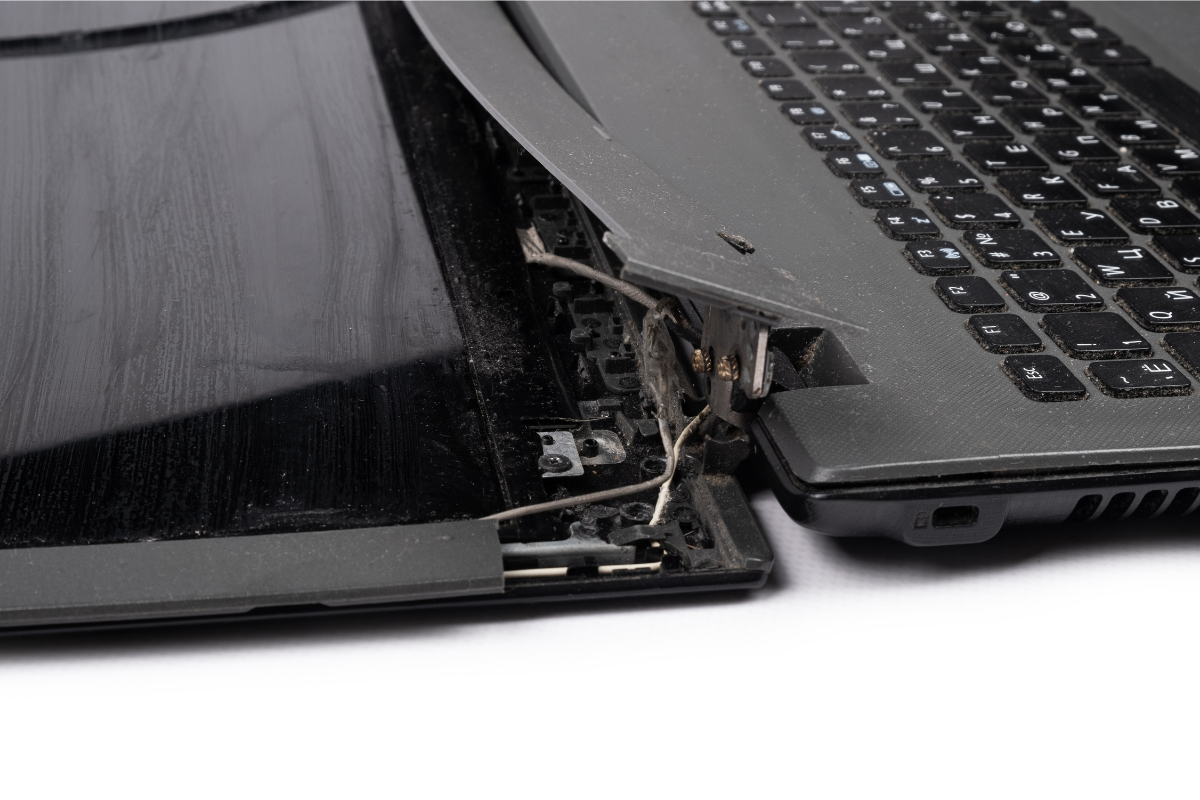
3. Find a Recycling Program or Center: Many certified e-waste recycling facilities accept laptops, or you can explore options through manufacturers. Companies like Dell and HP have recycling programs that allow you to mail in old laptops for safe disposal.
4. Consider Trade-In Programs: Many laptop manufacturers offer trade-in programs. By returning your old laptop to the manufacturer, you may receive a credit or discount on a new purchase, reducing both e-waste and the cost of upgrading.
5. Donate or Repurpose: Like phones, if your laptop is still functional, consider donating it to schools, libraries, or nonprofits. Some organizations refurbish used laptops for those in need, extending the device’s life while helping the community.
Other Ways to Dispose of Old Electronics
If you’re not ready to recycle, there are other options to reduce e-waste and make use of your old electronics.
- Refurbish or Repair: If your device isn’t functioning well, consider repairing it. A battery replacement or screen repair can make it feel new again without the environmental impact of purchasing a new device.
- Sell or Trade: Many companies offer trade-in options, even if your device is several years old. Websites like eBay or Gazelle are good for selling used electronics, allowing you to recoup some costs while keeping the device in use.
- Donate: Donating to charities, schools, or libraries is a great way to give old electronics a new life. Many organizations accept gently used laptops and phones, which they can repurpose or give to those in need.
- Upcycle: Get creative! Old devices can be repurposed for various projects, like turning a laptop into a digital photo frame or a phone into a dedicated music player.
Choosing a Certified Recycler
If you decide to recycle your device, choose a certified recycling center. Certified centers follow strict guidelines to ensure your device is recycled safely and responsibly. Here’s what to look for in a recycler:
1. EPA or R2 Certification: Certified recyclers adhere to environmental and safety standards set by agencies like the EPA or CalRecycle. These certifications indicate that the recycler follows best practices for environmental protection.
2. Data Security: Recyclers should offer data destruction services to ensure your personal information is securely wiped from your device. Ask if they provide certificates of destruction or other proof of data erasure.
3. Transparent Process: A reputable recycler should be able to explain their recycling process and how they handle different materials. Choose a recycler that is open about their methods and environmental practices.

Making a Difference Through Recycling
Recycling old phones and laptops is a small step that can make a big impact. With e-waste on the rise and the environmental impact of discarded electronics, responsible recycling is more important than ever. By following the steps outlined in this guide, you can recycle your old devices while protecting your data and the environment.
Whether you choose to recycle, donate, or sell, each action helps reduce e-waste and promote sustainability. Companies like Reboot Tech make the recycling process easy and secure, providing certified recycling services for individuals and businesses.
Remember, every device recycled brings us one step closer to a cleaner, greener planet. So next time you upgrade, consider recycling responsibly, and know that you’re contributing to a healthier world.


